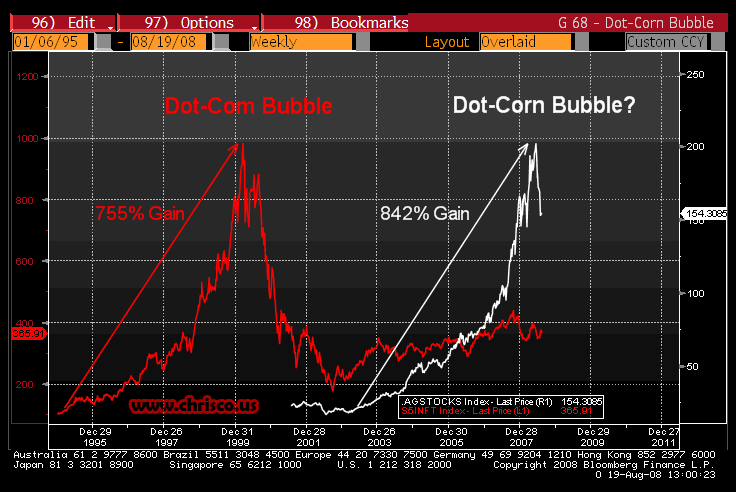 by millionairemind » Mon Sep 01, 2008 1:01 pm
by millionairemind » Mon Sep 01, 2008 1:01 pm
Enthusiasm for biofuels questioned
By Steve Johnson
Published: May 4 2008 20:07 | Last updated: May 4 2008 20:07
Jean Ziegler, the United Nations’ special rapporteur for the right to food, last month described biofuels as a “crime against humanityâ€.
For an industry that until recently was almost universally lauded as beneficial for mankind – and which is still showered with largesse from the public purse – the past year has produced a volte-face in public perception.
Thanks to heavy subsidies, one-third of this year’s US corn crop is forecast to be turned into vehicle fuel. At the same time, the world’s poor are reeling from spiralling food prices, not the last of which being a 78 per cent rise in corn prices since August.
The situation appears unsustainable and the first signs of an official backlash are emerging. The UK government has called for a review of the European Union’s biofuel targets, introduced only last month, which compel suppliers of transport fuels to include biofuels in their mix.
Malcolm Wicks, the UK’s energy minister, says: “It would be ridiculous if we fill up our cars with 5-10 per cent of biofuels if the consequences are that somewhere else in the world people are not being fed.â€
Stephan Wrobel, chief executive of Diapason Commodities Management, says: “At the moment there is a fight between food and fuel. At some point you have to choose, and [politicians] obviously choose food. Governments only backtrack when you get to a crisis level.â€
Commentators disagree about the proportion of food price rises that can be laid at the door of the biofuel industry. The UN’s Food and Agriculture Organisation estimates that biofuels have caused 10 per cent of recent food inflation. Other organisations put the figure at 20-30 per cent.
But whatever the true figure, it is clear the biofuel industry has got a fight on its hands if it is to survive as a mainstream sector.
Yet commodity analysts remain confident. Daniel Raab, managing director of AIG Financial Products, says: “I don’t think there is any potential for the US to reverse course; biofuel is very popular. But there is a question about whether it makes sense to divert a quarter of US corn production to make ethanol.â€
This drives to the heart of the problem. Corn ethanol production, supercharged by the generosity of the US taxpayer, is highly inefficient, yielding very little more energy than the fossil fuel used to produce it. For cane ethanol, produced from sugar cane, this ratio is 8:1, yet import tariffs prevent it being exported en masse to markets such as the US.
Mr Wrobel believes this has to change. “There could be a massive switch to sugar ethanol, which is more efficient [and] is not a big food staple. Sugar, because of its lowly price, is losing acreage [to wheat]. But sugar will be the big winner.â€
Not everyone agrees further expansion of the Brazilian sugar cane industry will be the saviour of biofuels. Mr Raab says: “The deforestation that is being done to produce sugar for biofuel is being seen as a net negative for global warming.â€
Instead a new generation of biofuel crops, currently still in the research stage, may need to enter wholesale production in order for the biofuel industry to reach a sustainable footing. Much hope rests on cellulosic ethanol, produced from grasses such as switchgrass that can grow on land deemed unfit for food crops, as well as agricultural residues and forestry and domestic waste. According to some estimates, this might yield as much as 36 times the fossil-fuel energy used to produce it.
“I don’t think biofuels are a short-term fad. The structure of how biofuel is produced is going to change as more effective models are developed, but I don’t think it is going to disappear any time soon,†Mr Raab adds.
Copyright The Financial Times Limited 2008
"If a speculator is correct half of the time, he is hitting a good average. Even being right 3 or 4 times out of 10 should yield a person a fortune if he has the sense to cut his losses quickly on the ventures where he has been wrong" - Bernard Baruch
Disclaimer - The author may at times own some of the stocks mentioned in this forum. All discussions are NOT to be construed as buy/sell recommendations. Readers are advised to do their own research and analysis.
